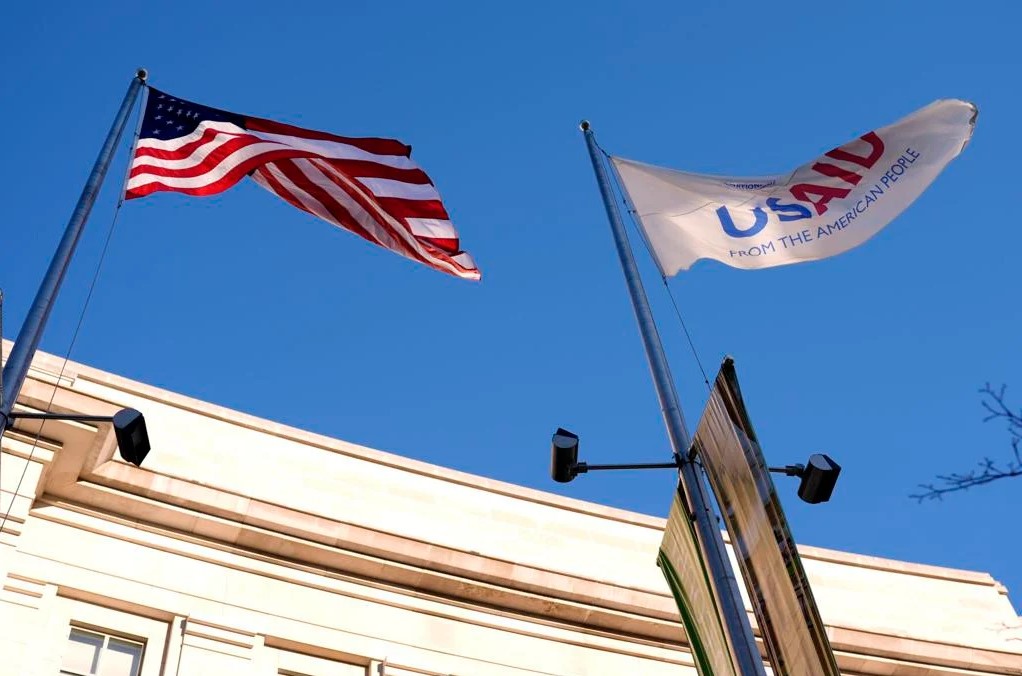In a surprising and dramatic move, former President Donald Trump has once again made headlines, this time for his reported decision to restructure the United States Agency for International Development (USAID). The move has sparked widespread debate across political lines and reignited discussions about the role of American foreign aid in diplomacy, national security, and global humanitarian efforts.
The controversy began on Friday when the USAID website abruptly went offline, leading to a flurry of speculation among political analysts and international aid organizations. Though no official statement was initially released, sources within the Trump administration suggested that plans were underway to integrate USAID more directly under the control of the State Department. Such a structural shift, if implemented, would represent a significant departure from the agency’s historically independent role in delivering foreign aid and development assistance.
Reaction from Critics
Critics, particularly from the Democratic Party and humanitarian advocacy groups, were quick to voice their concerns. Many fear that the proposed changes signal an attempt to reduce U.S. involvement in foreign aid and development initiatives, a long-standing target for Trump during his presidency. Senator Jane Collins, a vocal proponent of international development programs, called the move “short-sighted and dangerous” during a press briefing.
“USAID has been a cornerstone of American diplomacy and soft power,” Collins stated. “Dismantling or diminishing its role not only threatens humanitarian efforts but also undermines our national security.”
Her concerns were echoed by international aid organizations, who worry that a merger with the State Department could lead to a more politicized and less effective approach to development assistance. “Development work requires a long-term, impartial approach. Folding it into the State Department risks turning aid into a tool of political leverage,” said Marissa Green, director of Global Aid Alliance.
Support from Opponents of Foreign Aid
On the other side of the political spectrum, opponents of foreign aid have celebrated the move as a step toward reducing unnecessary government spending. Conservative commentator John Rivers praised the decision on his podcast, calling USAID a “bloated bureaucracy that often funds corrupt regimes and fails to produce tangible results for the American taxpayer.”
“This is a win for every American who believes in fiscal responsibility and putting our country first,” Rivers declared. “The State Department can handle foreign relations and aid more efficiently without the redundancy of USAID.”
Implications for U.S. Foreign Policy
The potential restructuring of USAID raises questions about the future of U.S. foreign policy and international engagement. For decades, the agency has played a crucial role in providing humanitarian assistance in crisis zones, supporting economic development in emerging markets, and promoting democratic governance abroad. Its programs have been instrumental in combating global health threats, including the HIV/AIDS epidemic and, more recently, the COVID-19 pandemic.
Diplomatic experts warn that diminishing USAID’s role could weaken America’s influence on the global stage. “Foreign aid is not just about charity; it’s about strategic investment,” said Dr. Thomas Barrett, a professor of international relations at Georgetown University. “When we help stabilize fragile states and improve living conditions, we reduce the risk of conflict and protect our own national interests.”
The Path Forward
As speculation continues to swirl, calls for transparency and clarification from the Trump administration have grown louder. Lawmakers from both parties have urged the administration to provide a detailed plan and justification for the proposed changes. Some have hinted at possible legislative action to block any drastic restructuring of the agency.
In response to the mounting pressure, White House officials have promised to release a comprehensive statement outlining the rationale and intended outcomes of the move. “President Trump is committed to ensuring that American foreign aid serves the best interests of the United States,” a senior administration official said. “This restructuring is about efficiency, accountability, and ensuring that taxpayer dollars are used wisely.”
Conclusion
As the debate unfolds, one thing is clear: the future of USAID and its role in U.S. foreign policy hangs in the balance. The decision to potentially integrate the agency under the State Department is a bold and controversial move that will have far-reaching implications. Whether it ultimately strengthens or undermines America’s global influence remains to be seen. For now, all eyes are on Washington as the country waits for clarity on the next chapter in U.S. international development efforts.
